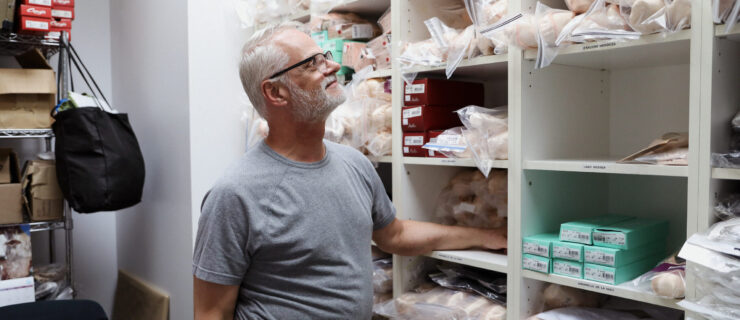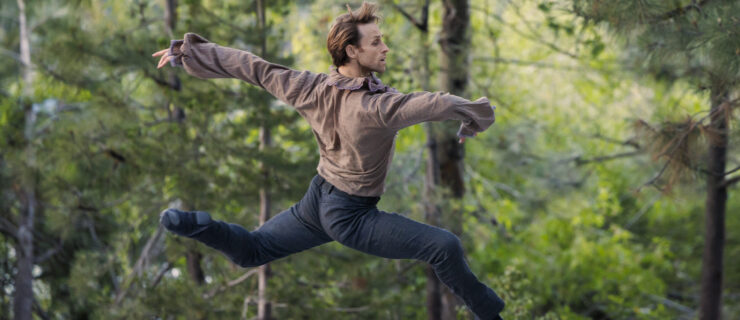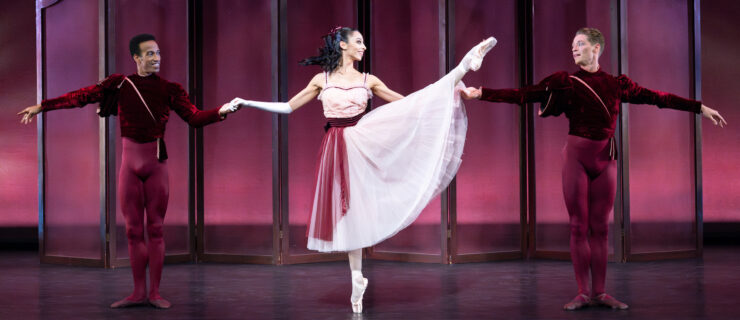Director's Notes: Something Old, Something New
The Washington Ballet’s Septime Webre keeps an eye on the past and the future.
In a company as small as The Washington Ballet, dancers don’t get lost in the corps. With just 20 members and two apprentices, artists perform frequently and get plenty of opportunities to dance solos and leading roles. They also work on new ballets with choreographers like Edwaard Liang and Karole Armitage.
Artistic Director Septime Webre expects company members to demonstrate a high level of responsibility for learning their roles, covering for others and being ready to step in and pick up the slack at a moment’s notice. “Because we’re small,” Webre says, “it’s important that we have fun and feel like we’re all in this together, contributing to the group, investigating through the group.”
In the decade since Webre, 47, took the helm of TWB, he’s brought a new, youthful energy to the company. “Artistically,” he says, “the company’s on the highest level it’s ever been.” Rough patches along the way, including a dancers’ strike in 2005, have been smoothed over. A collective-bargaining agreement resulted in improvements, providing a framework for better interaction between Webre and the dancers. He’s compared his relationship with his dancers to a marriage—sometimes a little rocky, but built on a firm foundation. “Going through that turmoil,” he says, “led everyone to become more invested in the group as a unit.”
Rehearsals, while still demanding, now frequently fill with laughter and friendly competition among the tight-knit company members, who spend their off-hours playing Rock Band together.
As Webre enters his second decade as director, he is leading TWB in an unorthodox direction: The troupe that made its mark under founder Mary Day by performing the sleek unitard-ballets of Choo-San Goh is now stepping wholeheartedly into the classical repertoire. Its 2009 production of Bournonville’s La Sylphide, ballet’s earliest expression of Romanticism, was not merely proficient; it was radiant. Next year will bring Le Corsaire—on the heels of this season’s Don Quixote. To fill out the casts, Webre uses the Studio Company, and has invited guest dancers and even top-level students from the company’s school. He knows that any ballet company worth its chops still needs to dance the classics. And in Washington, D.C., full-length ballets seem to attract an audience.
At the same time, Webre is unafraid of taking risks, continually seeking new challenges for his dancers. A multiyear project, tentatively titled “Made in Europe,” will bring in contemporary European masterworks from artists like Jirí Kylián and Nils Christie, while also introducing rising choreographers not yet seen on these shores. “I hope in the next five to seven years we’ll be the American ballet company with the most European choreographers in its repertoire,” he says.
And while Webre seeks new work from outside, he remains a choreographer at heart, typically creating a new ballet of his own each season. His most recent, The Great Gatsby, will be followed by a program called “Rock ‘n’ Roll” featuring ballets to music by Beck and The Rolling Stones.
When hiring dancers, Webre doesn’t demand a particular look or physique. “It makes the corps de ballet process a little challenging,” he laughs, “but I have an interest in individual dancers who are somewhat extreme, either extremely lyrical, extremely energetic, extremely athletic or someone who shows me a special personal quality.” Following an audition, he might invite a dancer to Washington to get a feel for the group dynamic before offering a contract, because in a chamber-sized group he has no room for divas or slackers.
Webre works at cementing artistic relationships with his dancers. “There’s something very fulfilling about being able to mentor dancers and see them grow over time,” he acknowledges. “That long-term relationship allows me to make repertoire and casting choices that are designed to both reflect the growth of artists and to foster opportunities for growth.”





